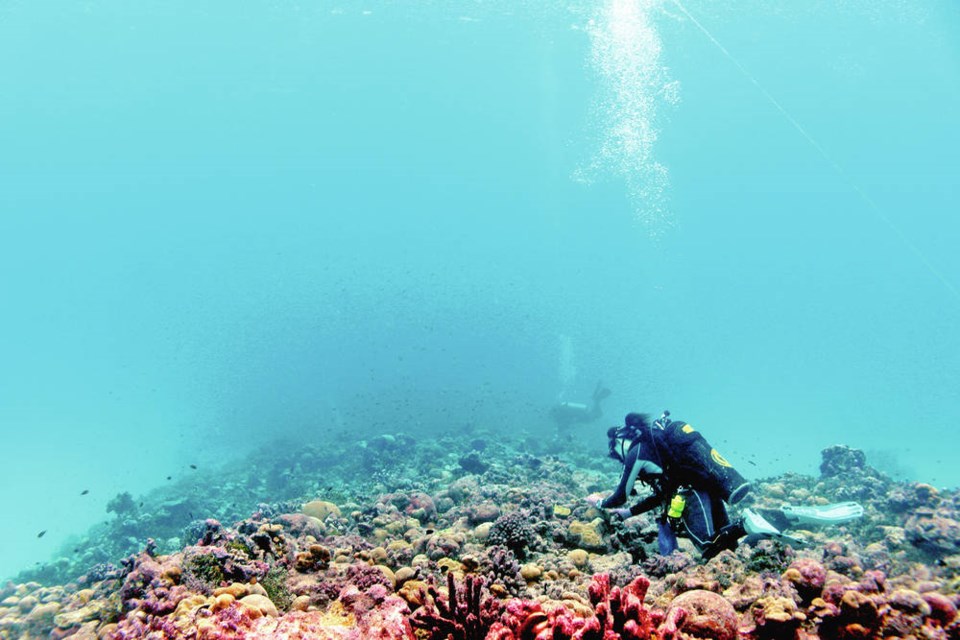A new study by University of Victoria biologists is providing a glimmer of hope for tropical coral reefs threatened by climate change.
Corals are highly sensitive to the temperature of surrounding waters. Warming oceans can cause them to lose their vibrant colour — known as coral bleaching — and die.
But UVic scientists have discovered that some corals can survive prolonged heat waves, particularly if they don’t face other human-caused stressors, such as water pollution and bacteria. It’s the first time corals have been observed recovering from bleaching while a heat wave persists.
Julia Baum, a UVic marine biologist and the study’s senior author, called the discovery “a game changer.”
“This provides a little bit of good news that corals, or at least some types of corals, may be able to survive under heat stress for longer than we thought,” Baum said.
Heat stress usually causes corals to bleach after a few weeks and die in eight to 10 weeks if the water temperature remains elevated, she said. The corals die of starvation, because the heat causes them to release the algae that produce food for them. If corals can reclaim their food source within a few weeks, they can usually recover.
Until the UVic team’s discovery, corals had only been observed recovering from bleaching after waters cooled to typical temperatures.
The group monitored hundreds of coral colonies around Christmas Island, an Australian territory south of Indonesia, on six expeditions during a nearly year-long heat wave. The island was at the epicentre of the third-ever global coral bleaching event, caused by the 2015-2016 El Nin0.
“We were really worried that all of the corals might die during that extended heat stress,” Baum said. “And so it was quite surprising to find that some of them survived.”
Danielle Claar, who led the study as a UVic PhD student, said the discovery helps scientists understand how some corals can be resilient to climate change, which is the biggest threat to coral’s survival.
Corals were more resilient while under heat stress if they were located away from where people live on Christmas Island.
That’s a significant discovery, Claar said, because researchers previously suggested that there’s no sense in considering local stressors on coral, because it can’t mitigate the impact of climate change.
“I think the most important thing that we can take away from this study is that local protection does matter in some instances,” said Claar, now a climate and global change post-doctoral fellow at the University of Washington.
The study shows it’s important to address local problems — such as inadequately treated sewage and fertilizer runoff — to buy time for coral’s survival while governments tackle climate change, Claar said.
Coral reefs are the most biologically diverse marine ecosystem, home to about one-quarter of marine species. They’re made up of hundreds of individual coral polyps that together form a coral colony, which fuses with other colonies. When colonies die, they harden and form the backbone of coral reefs.
“They’re extremely important ecosystems in the tropics,” Baum said. “Economically, they are worth billions of dollars annually around the world. And they also provide really important sources of food for hundreds of millions of people in tropical island nations around the world.”
The most important thing Canadians can do if they care about the survival of corals, or oceans in general, is to keep pressure on the government to address climate change, she said — particularly through commitment to the Paris Agreement and a COVID economic recovery plan that includes climate-change mitigation.



